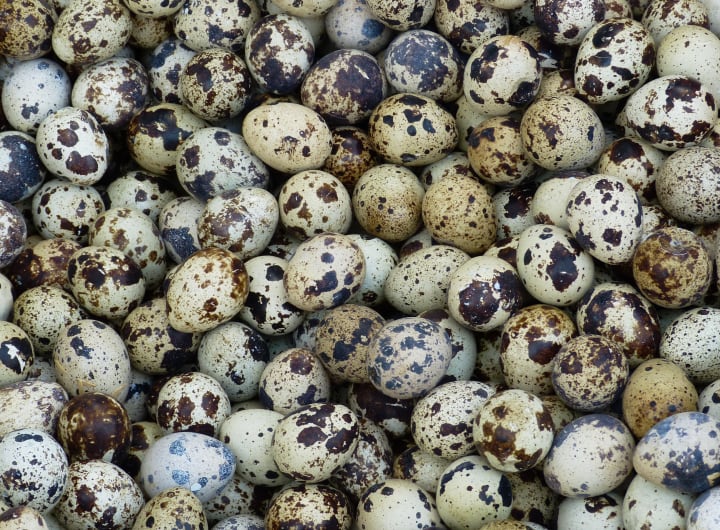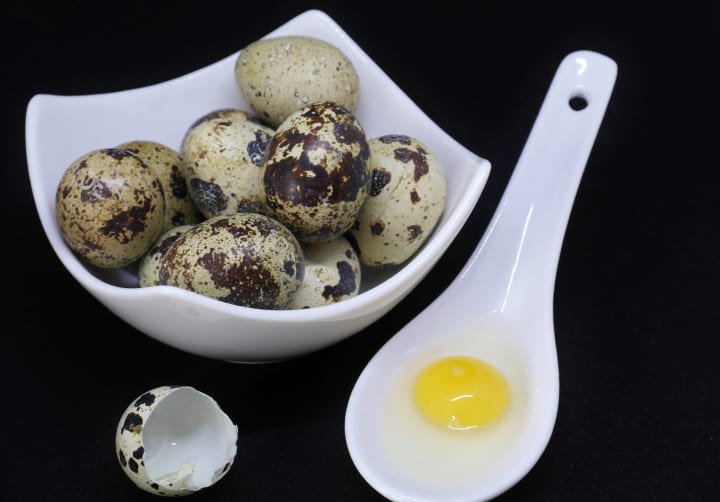Benefits of quail eggs : get to know them
benefits of quail eggs : get to know them

Benefits of quail eggs: get to know them
Are quail eggs really useful and nutritious, or can eating them pose a risk to your health? Let's learn about the benefits and harms of quail eggs, and the most important information related to them in the following article
Quail eggs are a special type of egg that comes from the quail bird. This type of egg is characterized by its small size and sugary shells that are speckled with brown spots.
Let us learn more about the benefits of quail eggs and their nutritional values as follows:
The benefits of quail eggs
Quail eggs have a range of potential nutritional benefits, here is a list of the most important:
1. Relieve allergy symptoms
Some studies have found that one of the potential benefits of quail eggs is its ability to relieve some annoying symptoms that may accompany different types of allergies, such as: seasonal allergies, or even food allergies.
This is because quail eggs contain a high percentage of mucosa protein, which acts as a natural anti-allergic agent in the body.
2. A natural remedy for salmonella
Quail eggs contain natural antibodies that may help attack salmonella, so scientists are currently trying to manufacture a new drug to combat salmonella using quail eggs.
3. Cleansing the body of toxins
One of the benefits of quail eggs is that it may help to gradually purify the bloodstream from toxins, and this in turn leads to a decrease in the chances of damage to liver cells, as the amount of toxins that the liver may need to get rid of from the body decreases, and thus the chances of liver infection with various diseases are reduced. The body in general is getting better.

4. Prevention of anemia
Quail eggs are one of the natural foods rich in iron, so eating them regularly may help protect against anemia before it occurs or speed up the recovery process from anemia after infection.
The richness of quail eggs in potassium also makes it one of the types of foods that help improve the ability of red blood cells to perform their natural functions in the body.
6. Other benefits
Other potential benefits of quail eggs include:
Protecting the kidneys from various diseases.
Fighting some chronic diseases, such as: nervous system diseases, and cancer.
Improving the body's metabolism and accelerating its pace.
Reducing bad cholesterol levels in the body, and preventing heart disease.
Protecting eyes from various diseases, such as: cataracts and glaucoma.
Breaking up kidney stones and gallbladder stones.
Strengthening bones, nails and teeth.
Relieve depression.
Strengthening the body's immunity.
Nutritional value of quail eggs
Small quail eggs have a relatively high nutritional value, as one quail egg weighing 9 grams contains the following:
Calories 14.2 calories
Protein 1.18 grams
Carbohydrates 0.037 gr
Fat 0.998 gr
Calcium 5.76 milligrams
Iron 0.328 milligrams
Magnesium 1.17 milligrams
phosphorus 20.3 milligrams
Potassium 11.9 milligrams
Sodium 12.7 milligrams
Selenium 2.88 mcg
Zinc 0.132 milligrams
Vitamin A 48.9 IU
Damages and warnings
Although the potential benefits of quail eggs are many and varied, eating them is not without some harms and caveats that you should know, and here is a list of the most important of them:

Most of the quail eggs available in the market may not be subject to any kind of pasteurization and sterilization process, and therefore their shells may contain different types of harmful bacteria, so it is preferable to avoid eating them completely by some groups, such as: pregnant women, children, and people with weak immunity.
It may be preferable to cook quail eggs completely and make sure that they are well cooked before eating them, in order to ensure that any type of bacteria that may be stuck in the eggshells or inside the eggs themselves are killed.
Eating quail eggs may cause an allergic reaction, especially when eaten by people who are already allergic to chicken eggs.
Quail eggs may contain a higher amount of cholesterol and saturated fats than those contained in regular chicken eggs, so they should be eaten in moderation without exaggeration or excess.
Unlike chicken eggs, quail eggshells do not contain salmonella, but eating them raw may not be a wise decision, as the shells of these eggs may contain other bacterial strains.







Comments
There are no comments for this story
Be the first to respond and start the conversation.